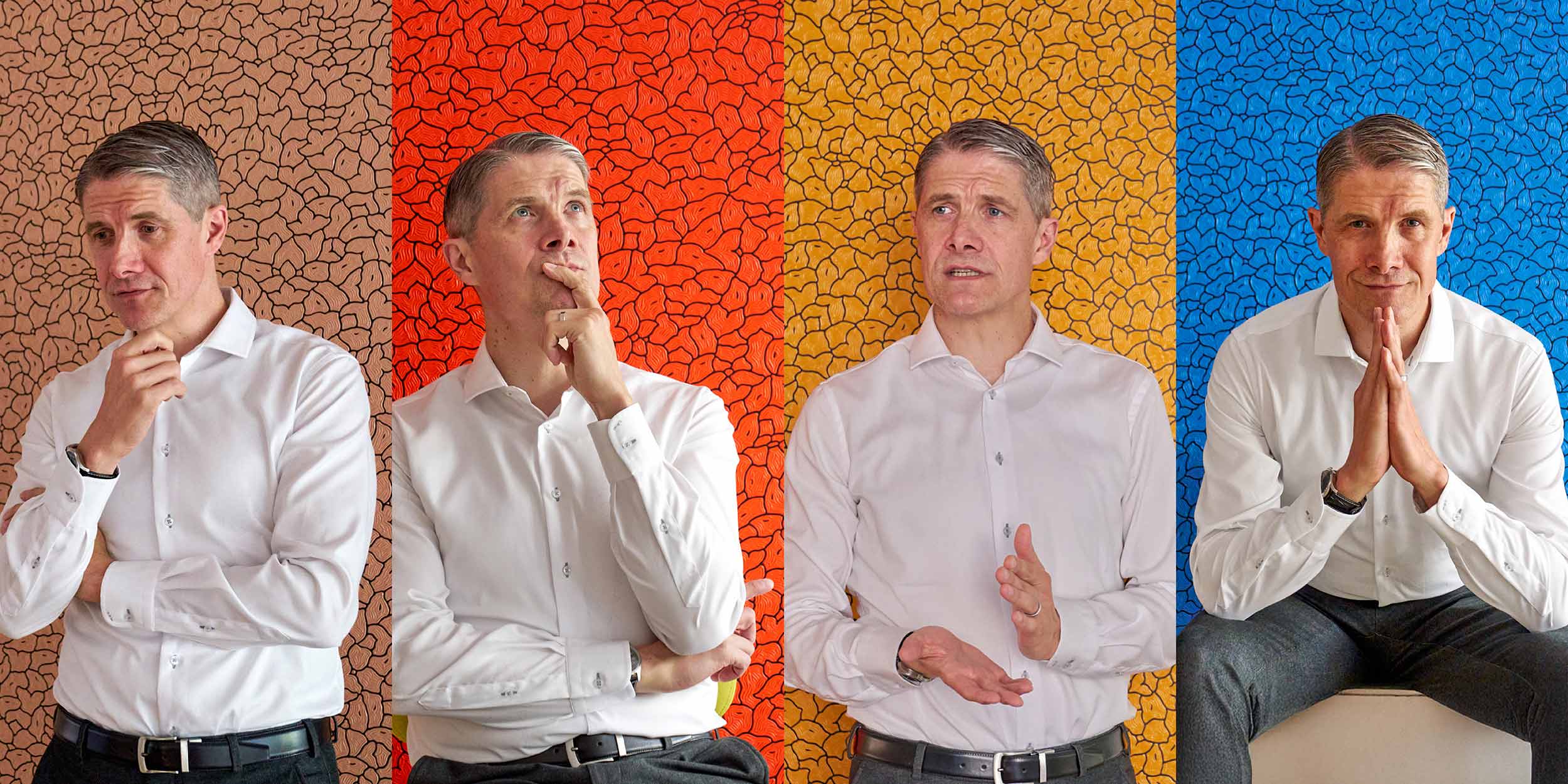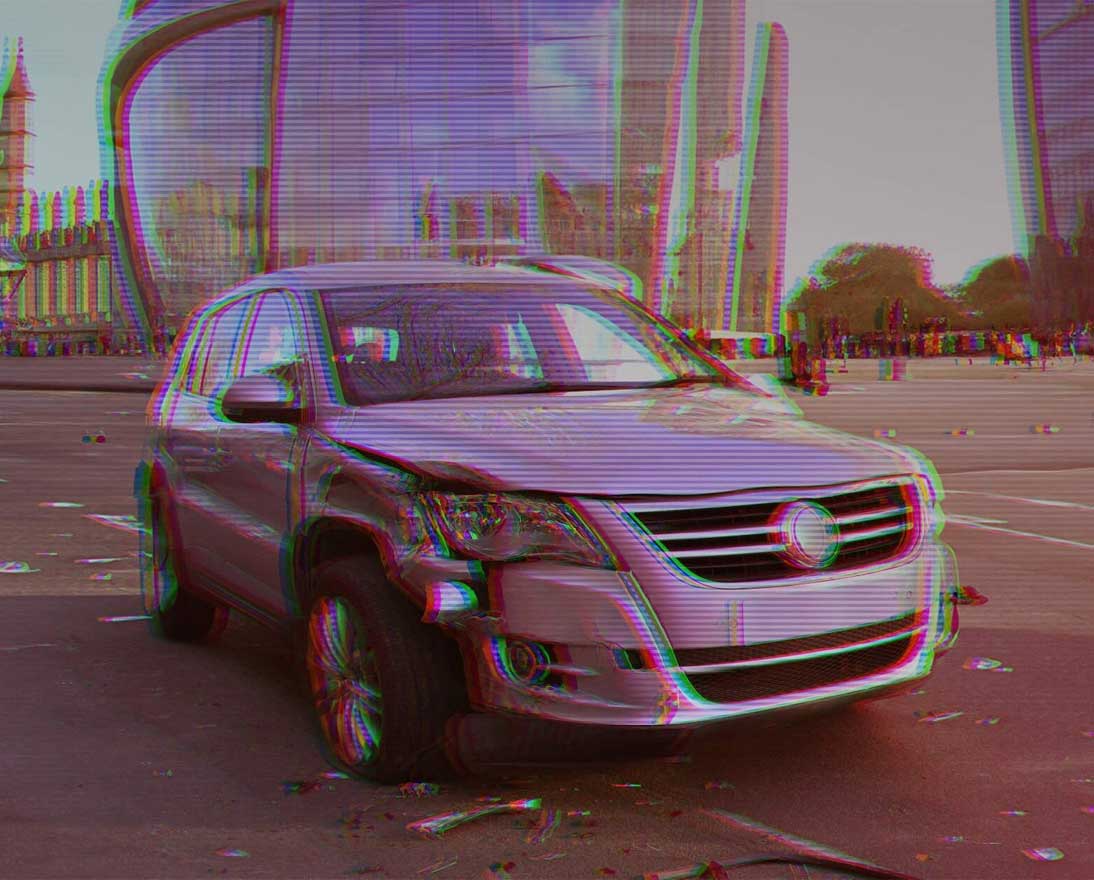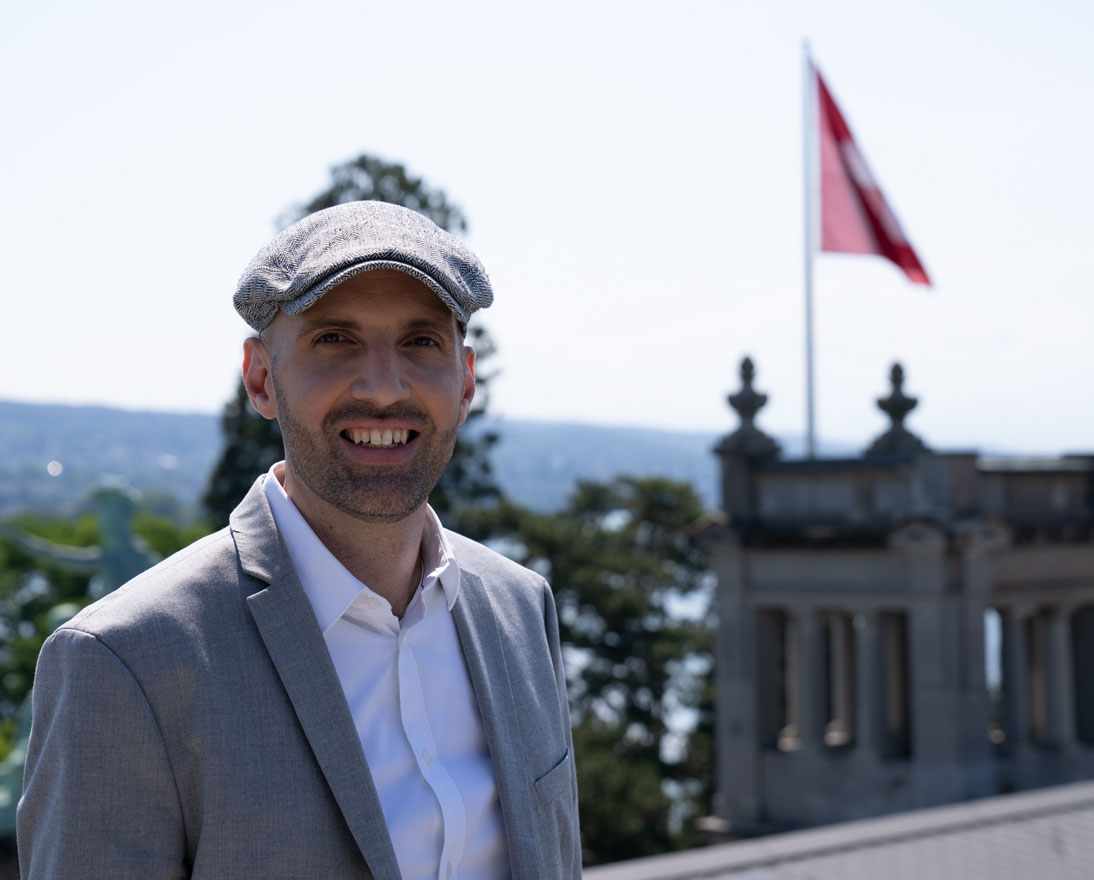Where is AI headed?
PeopleArticleMarch 4, 2025
Zurich’s artificial intelligence guru Christian Westermann has some answers. And you might want to listen – he only started his career at NASA on a quest to find the origins of life.
I. ‘This is a big deal for us’
Christian Westermann is walking along Lake Zurich on a recent afternoon when at one point he stops and declares, “I’m just an ordinary Swiss guy.”
Ordinary, really? “Yeah,” says Zurich Insurance Group’s Head of AI, without an ounce of false modesty. “Just an average Swiss guy.”
Over the past couple of hours, he’s been discussing his life and career thus far: from his time as a software developer; to nearly 20 years supporting blue chip companies and multinationals on their data and AI journey; and before all that, perhaps most significantly, to the work he did at NASA. Yes, the “one giant step for mankind” NASA. And he wasn’t there hawking T-shirts at Cape Canaveral. Rather, he contributed to the building and calibration of mass spectrometers, complex instruments that identify the chemical constitution of a substance by separating gaseous ions according to their differing mass and charge.
He accomplished that around the turn of the last century for both NASA’s two-decade-long Cassini mission that explored Saturn, and the European Space Agency’s Rosetta probe, which was sent to orbit around the Churyumov-Gerasimenko comet.
“If you want to understand the origin of life,” he says, “you need to understand what’s in the comets. And if you want to understand what’s in comets, you need mass spectrometers.”
For the last two years, this ordinary, average Swiss guy has been leading Zurich’s extraordinary AI charge, something that, for him, harkens back to those heady NASA days.
“I’m a guy who likes innovation, who likes technical progress,” says Westermann, today dressed in tech chic: charcoal-gray trousers, a crisp white dress shirt, equally crisp white leather Zurich-branded Adidas, and a two-day stubble. Plus, he’s sporting one of his favorite watches, Hamilton’s “Khaki Field Murph Auto,” inspired by the sci-fi thriller Interstellar from Christopher Nolan (his favorite director, if you ever want to chat him up at the water cooler). “I appreciate how things can be solved or done differently. So I’ve found a new passion in AI. A passion that reminds me of my good old time in physics. How can we learn more about the world to think differently – that’s what I find in AI today.”
That passion, particularly around the work he’s doing at Zurich, is palpable. “Gen AI is good with language, and Zurich lives in many languages around the world,” says the married father of two, who commutes by train every day from the neighboring canton of Aargau. (The ordinary, average bit apparently.) “The things that we do – our policies, underwriting, customer interactions and claims management – are very much language driven. So for us, I see many, many opportunities to support our teams working on these topics. Not in terms of what we do in insurance – we will remain an insurance company with risk experts, underwriting and so on – but in the way we do it. I really believe this is a big deal for us: the way we will work with written documents, with understanding what’s in there, and in how we take those insights further. It will really change the way we do things and make us better and more efficient. And we hope customers will have a better experience. This will keep us busy over the next three, four or five years to really get into this transformation. We as a company are driving the AI revolution in our industry.”
II. Math geek to mass spectrometers
Westermann’s obsession with physics and technology began with his love, and proficiency, for mathematics as a child in his native Fribourg, Switzerland. Numbers just came naturally to him, even if he belied the stereotype of a math geek.
He was also an athlete growing up and enjoyed volleyball, tennis, skiing and karate. In fact, he’s still fit and looks as if he might play in a U-50 league, though now he sticks mainly to fencing, hiking and hitting the gym a couple of times a week. As a young adult, he not only completed his compulsory Swiss army service but was in Special Mountain Combat Forces and awarded for his outstanding performance there.
He would go on to study physics and astronomy at the University of Bern. It’s an institution with a sterling reputation in both disciplines from the time Albert Einstein taught there in the early 20th century, to the assistance it provided to the first moon landing in 1969, and onto a string of noted professors in the field, including Dr. Hans Balsiger, whom Westermann would study under for his master’s and PhD – the ESA and NASA projects, respectively.
The NASA project took him to Goddard Space Flight Center in Greenbelt, Maryland, just outside Washington, D.C. It’s where Westermann contributed to the calibration of the mass spectrometer that was put on the Cassini spacecraft, which flew seven years to Saturn and its moons, then measured the composition of the ringed planet’s atmosphere.
But before the mass spectrometers were even sent out, they had to be tested under space conditions, through cometary simulation systems. At the time, there were just two such systems globally. “It’s so specialized, you find very few people you can discuss your work with,” he says.
A few years before, in 1992, Claude Nicollier, the first astronaut from Switzerland, made his inaugural space flight and was a hero to the young Westermann. If he can do it, why not me, Westermann thought. He had the science and military background, after all. But it didn’t happen. “At a certain point, I realized it was too unrealistic,” he says.
NASA did want to retain his services, but as flattering as that was, “it wasn’t interesting from a financial point of view.” And for someone who had been supporting himself since he was 19, that mattered. “It was time to leave physics as a field and get into something in the real world, with real customers, with real Earth problems.”
Soon there would be other opportunities, with the advent of Google in 1998, followed by other search engines and soon social media and smartphones. “It was a natural move for me to go from physics to a broad technology area.”
It was then he became a software developer in telecommunications and satellite communications, building applications for various companies. By the mid-aughts, he moved to one of the big consulting firms. There he worked mainly for large banks on the challenges they were facing in technology and related regulation.
He enjoyed the quick feedback loop in the private sector as compared to space science, where, he says, “you work on important projects, deal with important questions, but the feedback loop is more than 10 years.”
In around 2009, his firm came to him and said, “‘Christian, you’re the physics guy – we have to do more with data, with analytics. Why don’t you start to build on this?’” So he hired people with backgrounds in physics, mathematics and computer science.
By 2014, it was all AI, all the time. “Suddenly, all the consultants were talking about AI because their customers were talking about AI. My team was growing to over 100 AI and data-science experts working for different industries.”
After 15 years, he was off to another consulting company for about 18 months, where he was supporting businesses in the strategic scaling of AI. “Consulting was nice,” Westermann says, “but I wanted to see how the world worked beyond that, like The Truman Show. You live in a world that’s perfect. You’re successful. But what does the world look like outside The Truman Show? I wanted to do something for a company long-term, end-to-end, seeing everything.”
III. Coming to Zurich
Peter Kasahara, a former colleague from a previous job, convinced Westermann to consider Zurich. Kasahara was hired to lead the data team in 2021 by Zurich’s Group Chief Information and Digital Officer Ericson Chan, and thought he’d be a good fit. Westermann ended up joining in 2022.
Here, he heads a team of about 70 that he happily sits among in their open office space not only to discuss the ever-evolving news about AI – which he often posts on LinkedIn – but to share ideas and to just be engaged. “People like that,” he says. “It’s cool. And I hear and see a lot.”
This is the same team that developed ZuriChat – the company’s own version of ChatGPT, rolled out globally in 2023 – which is run in a safe, protected environment. Westermann himself uses it daily – “we all do,” he says – for translation, coding, anything language related. It also provides him “the space where I can explore the next thing. What should we do as a broader team, like analyzing the content of images, and how, along our value chain, this can be turned into better outcomes.”
There have been many other exciting AI developments at the company. Today, Zurich as an organization has over 500 AI applications and AI tools in deployment and development – in risk modeling; in climate risk; in fraud; and in how to process claims faster – a journey that began around 2016, before Westermann joined.
His team has been engaging with different business units to work on use cases. Most prominently, they’ve been working with Group Chief Underwriting Officer Penny Seach to produce a few different tools – among them internally developed AI technology that supports underwriters in using consistent policy wordings as well as in their interactions with underwriting guidelines. “Thanks to this,” Seach says, “we have come to our own roadmap for the next two, three years on what we would like to build to help maintain Zurich’s position as a market leader in underwriting.”
Westermann also talks up his team’s work in one of Zurich’s bank distribution channels, where they developed a new platform based on generative AI that helps improve contact-center outcomes. For the first time, Zurich can understand its customer interactions at scale.
“And that’s just a snippet,” he says, barely containing his excitement. There is more to come, even if he’s not at liberty to discuss it yet.
Beyond the advancements in large language models, Westermann and his team are keeping a close eye on emerging new concepts, such as agentic AI, in which AI agents are given more autonomy to solve specific tasks, on their own or in combination with other AI agents.
In addition, he’s monitoring the development of reasoning models, such as o1 and o3 from OpenAI and DeepSeek, which have marked a pivotal shift in the AI landscape. These models equip AI with the ability to think and reason, paving the way for more sophisticated problem-solving capabilities.
“Together, agentic AI and reasoning models promise to revolutionize the way businesses leverage AI, driving unprecedented levels of efficiency, but also fundamentamental changes of the entire technology stack,” he says.
As excited as Westermann is, he’s not an AI utopian, either. He hears the critics – from Geoffrey Hinton, the recent Nobel Prize winner in physics who helped develop the darn thing but has sounded the alarm bells, to the average person down the street who’s afraid of losing their job.
“My team is also questioning how much gen AI will impact the work they are doing, and the same is true for myself,” he says, again without false modesty. “No, really. Why do we need somebody responsible for AI if AI is so easy to use? The best advice I can give is to discuss these questions, don’t avoid them, right? So that means whatever your profession is, whether you’re an actor or a claims handler, the best thing to do is to confront the threat and say, ‘OK, AI is here. I will expose myself to these tools, make it part of my process. I want to see it because only then can I see what AI can actually do. I can see its limitations and strengths; I can see my limitations and strengths. Then I have enough information to think about the next step and how to do it better.”
That’s why upskilling is so essential. “My observation is that there can never be enough upskilling,” Westermann says. “I’ve underestimated how much upskilling is needed – at all levels. You say, ‘You need to understand this,’ and maybe tell them a second time. So upskilling is an ongoing topic.”
Last August, his team issued the Executive AI Masterclass, a series of eight internal videos totaling 90 minutes. Although it was meant to educate Zurich’s business unit leaders so they are better able to understand what they can do with AI and how it can impact their business, employees at all levels can access it and are encouraged to watch. More upskilling opportunities, Westermann assures, are in the works.
And Zurich’s employees around the world are in an ideal position when it comes to AI, according to Westerman. “When you tell people you work in insurance, for many it sounds boring,” he says. “But I remind them that from an AI practitioner side, which I am, insurance is the best place to be, because it’s so interesting. You have many things to solve, and you have our customers. They live in the real world: Something happens to them, an incident, they need help. And customers are happy when you can help them as best, and fast, as you can….So with that vision in mind, I always say an insurance company, from an AI point of view, is the best place to be because it offers so many opportunities.”
Join Zurich’s digital and technology teams!
Have a look at our digital & technology career page.



